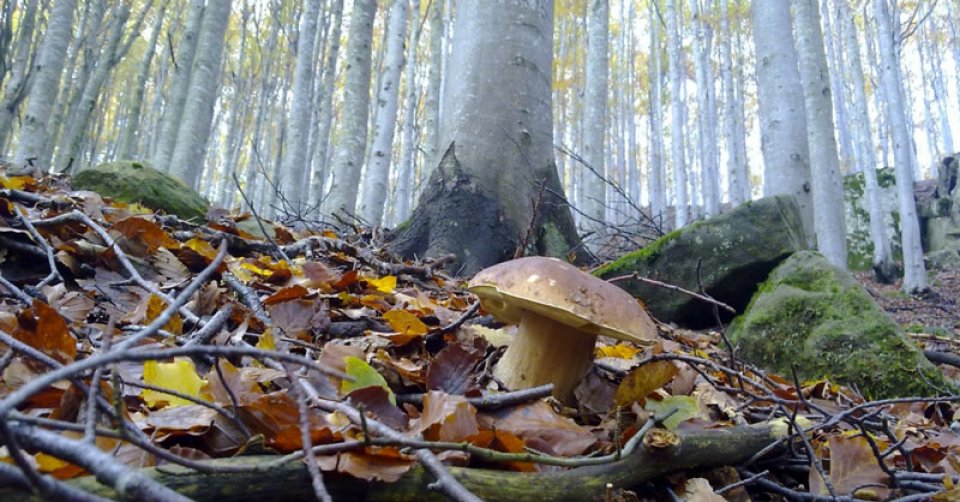
The ‘Mushrooms of Borgotaro IGP’ are produced in the forests of the Tuscan-Emilian Apennines. The forests primarily consist of chestnut and beech species and have been managed as coppice forests for centuries with a 40-year coppice cycle. National laws have formally privatized the wild mushroom grown in managed forests. This makes it possible to sell harvesting rights within specific local regulation. In 1964, the Consorzio Comunalie Parmensi (CCP) was established to organize the commercialization of permits for recreational wild mushroom picking. The pre-existing permits are paper-based and have to be bought in-person at designated sales points.
This case study from the SINCERE project had the goal to:
- Develop a new online platform or smart phone application to improve the commercialization of the permits and the pickers’ experience.
- Expand the type of users and demands: to reach younger customers; to orient pickers to areas specific to their permit category; and to improve visitor security.
This case study project developed a new online tool to improve the potential for commercializing the existing market for permits for mushroom picking and the recreational experience of mushroom pickers in the local forest of Borgotaro.
A technological transition from an old-fashioned paper-based permit system to an online system that allows easy access for all users. Specifically, the online system is developed so that users can access and buy permits through a mobile phone application, which at the same time offers maps of the forest and works as a way-finding tool.
Targeting new types of users and creating demand, eg. by reaching younger citizens, this mechanism will increase the number of recreational mushroom pickers.
Mushroom pickers can be allocated to designated areas, creating a link between the probability of harvest and the price of the permit, which creates a clear incentive structure to buy permits.
Converting to an online platform to sell permits potentially reduces transaction costs for forest owners.
The online platform offers the possibility for geographical control of the distribution of mushroom pickers. This enables mushroom pickers to be allocated to areas with mushroom production that reflects their payment, keeps the concentration of pickers low in certain areas and avoids potential conflicts. App downloads and buy-in from users not previously active as mushroom pickers are key indicators, alongside use by existing mushroom pickers. The funds generated could provide conditions for further Forest Ecosystem Services (FES) provision in the future. Revenues are distributed according to written rules and are either reinvested in the forest management that will allow for specific silvicultural treatments or invested in community projects such as the renovation of forest infrastructure.
Recreational services provided by the forest might be enhanced for all mushroom pickers, as ease of access and experience are improved for both existing and new pickers.
As a result of the increased willingness to pay for permits, forest owners’ income and welfare would be improved.
National geographical upscaling: If similar structures of selling paper permits for mushroom picking exist in other regions of Italy, the innovation mechanism (IM) has the potential to be adopted elsewhere. App development has already taken place so the entry costs for another implementation appear low. Such a platform has several generic features and would need little adjustment to fit other areas.
Upscaling to other schemes: Given the format and focus of the case study, it is questionable if there are other related existing regulation and instruments in place addressing the same service that may adopt aspects of this IM.
Upscaling in scope: Contingent on the existing legal framework allowing permit selling for different forest services, the online application appears to be potentially expandable to activities, such as mountain biking, horseback riding, walking trails, shelter camping, etc.
Upscaling to other countries: Selling permits allowing the use of forest ecosystem services (FES) is an ever-present activity and as such the conversion to an online platform offers the potential to reduce forest owners’ transaction costs. However, the underlying legal framework must allow for commercialization of the service, as around Europe traditionally a number of these services are free for the public to enjoy. Thus, the service must offer something that is above and beyond the existing right enjoyed by forest users.
